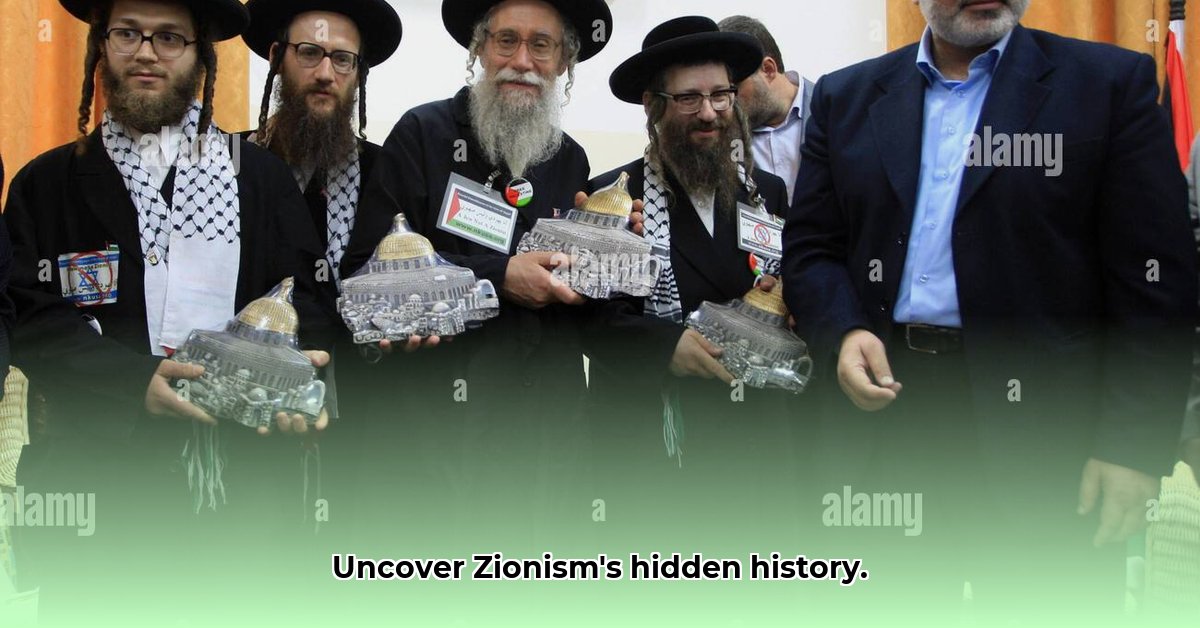
Understanding Zionism: A Century of Hope and Struggle
The term "Zionism" evokes powerful and often conflicting images – a triumphant nation-state, a contentious ongoing conflict, and deeply held religious and political beliefs. Simply put, Zionism is the national movement for the re-establishment and development of a Jewish state in the historical Land of Israel (Palestine). Emerging from centuries of antisemitism and persecution, it's a story deeply interwoven with hope, hardship, and enduring conflict. This exploration delves into the complexities of Zionism, examining its historical trajectory, internal divisions, and ongoing impact on the Israeli-Palestinian conflict.
The Genesis of Zionism: From Persecution to Political Action
Nineteenth-century Europe witnessed a resurgence of anti-Jewish sentiment, forcing many to question their future and security. Thinkers like Theodor Herzl, often hailed as the father of modern political Zionism, and figures like Nachman Syrkin, a prominent socialist Zionist, advocated for a Jewish state as a refuge from persecution. This wasn't merely a desire for land; it was a vision of self-determination, a place where Jewish culture and faith could flourish without fear. The First Zionist Congress in Basel, Switzerland, in 1897, formalised this aspiration, marking a pivotal moment in the movement's history.
The Balfour Declaration: A Promise and Its Perplexities
The Balfour Declaration of 1917, a letter from the British government supporting a "national home for the Jewish people" in Palestine, represented both a promise and a profound complication. Palestine was not uninhabited; it housed a substantial Arab population with its own deep historical roots and claims to the land. While offering hope to many Jews, the Declaration simultaneously sowed seeds of conflict that persist to this day. How could a promise of a Jewish homeland be reconciled with the existing Palestinian population? This is a fundamental question that has shaped the subsequent history of the region.
The Holocaust: A Catalyst and a Shadow
The Holocaust’s unspeakable horrors intensified the Zionist project's urgency. The systematic murder of six million Jews tragically underscored the vulnerability of Jewish communities in the Diaspora, reinforcing the desperate need for a refuge from persecution. While the Holocaust served as a powerful catalyst for statehood, it also profoundly altered the conflict's dynamics, casting a long, dark shadow over the narrative of Zionism's triumph.
1948 and Beyond: A Nation Born, a Conflict Enduring
The establishment of the State of Israel in 1948 was a momentous achievement, fulfilling a long-held dream. However, this victory was immediately overshadowed by the 1948 Arab-Israeli War, resulting in the displacement of hundreds of thousands of Palestinians – a traumatic event known as the Nakba (catastrophe). This event fundamentally shaped the ongoing conflict and continues to fuel animosity, leaving a legacy of unresolved issues and deep-seated grievances.
Internal Divisions: A House Divided?
Zionism was never a monolithic movement. Diverse ideological streams – religious, secular, socialist, revisionist – existed within it, often clashing over the movement's goals and methods. These internal debates, at times intense and divisive, continue to shape Israeli politics and society. How have these internal divisions influenced the evolution and trajectory of Israeli society? This complexity is a crucial aspect of understanding Zionism’s impact.
The Palestinian Narrative: An Essential Counterpoint
Any comprehensive understanding of Zionism must include the Palestinian perspective. The creation of Israel, from their viewpoint, represents a profound injustice – dispossession and displacement on a massive scale. The Nakba remains a central element in the Palestinian experience and profoundly shapes their ongoing struggle for self-determination. Ignoring their perspective distorts the historical narrative and diminishes their humanity.
Post-Zionism and Beyond: Internal Criticism and Evolving Identities
Even within Israel, self-critical voices have emerged. Post-Zionism, for example, challenges the fundamental assumptions of the Zionist project, questioning its social, political, and ethical consequences, particularly concerning the ongoing occupation of Palestinian territories. These internal critiques reveal Zionism's ongoing transformation and the diverse opinions within Israeli society.
Global Support and Opposition: A Complex International Landscape
Zionism has garnered both fervent support and staunch opposition globally. Christian Zionist groups, driven by theological interpretations, have offered considerable financial and political backing, particularly in the United States. However, this support has also been met with criticism, particularly concerning its impact on the pursuit of a just and lasting peace in the region. Simultaneously, opposition to Israeli policies and actions, often rooted in human rights concerns, continues to be widespread.
A Continuing Story: Towards a Deeper Understanding
The meaning of Zionism remains a subject of ongoing debate and interpretation. It's a narrative of both triumph and tragedy, of aspirations fulfilled and dreams deferred. A complete understanding requires acknowledging its complexities, contradictions, and the diverse perspectives of all those affected by its history and ongoing consequences. It's a story that requires sustained engagement and reflection to comprehend its multifaceted nature and its enduring impact on the region and the world.